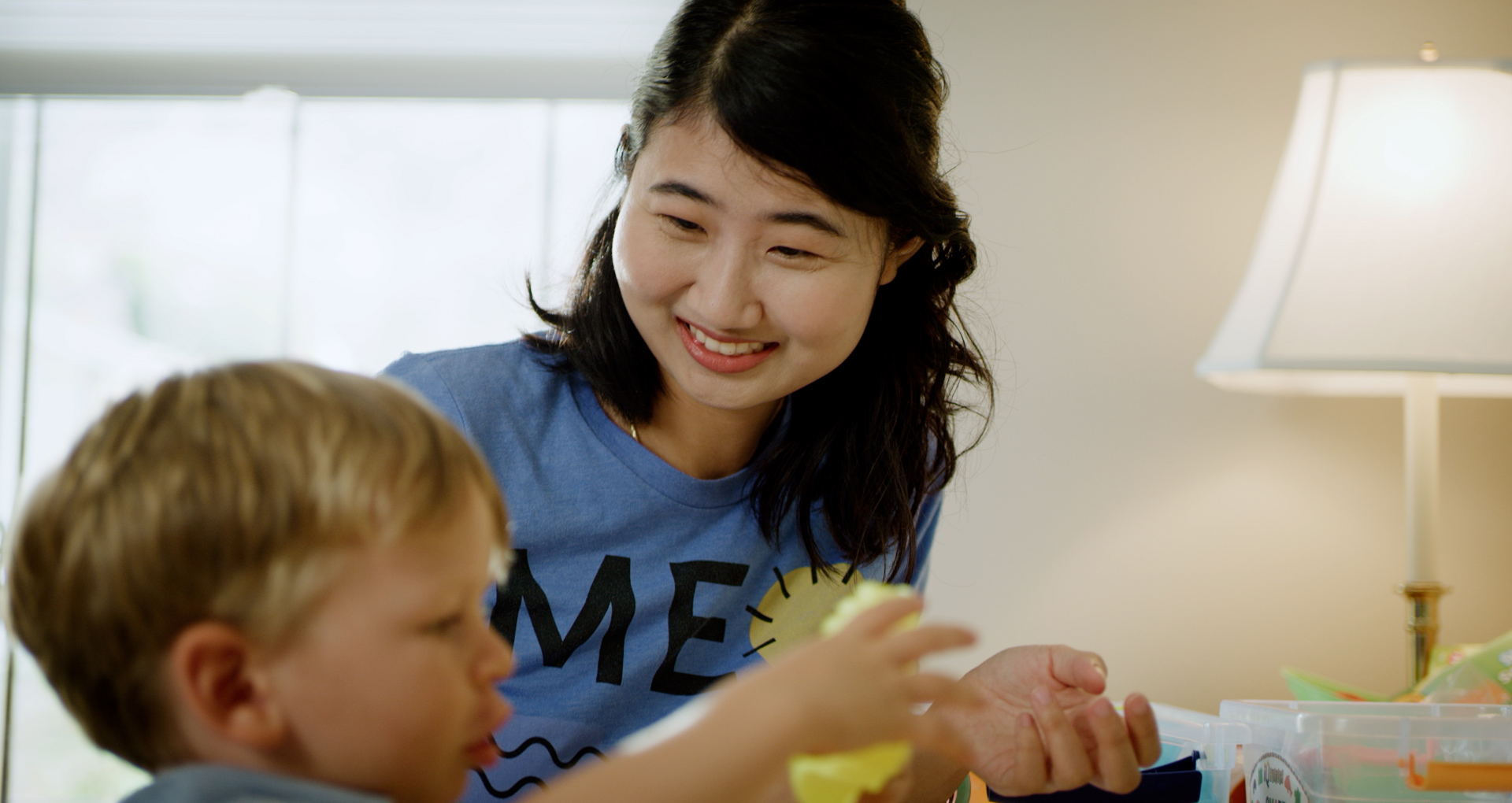When it comes to home-based Applied Behavior Analysis (ABA) services, finding the right fit for your child can feel overwhelming! To help, the MeBe team of Board Certified Behavior Analysts have shared our top 4 benefits to receiving in-home ABA services for children with autism and their families.
In addition, we have included links to research articles below to help you learn more about the effectiveness of home-based ABA services and parent training.
ABA therapy can be provided in various settings, including the school, home, community, and at a center. The appropriate setting comes down to what will be most beneficial for your child and what works best with your life.
1. Convenience
Many caregivers opt for in-home ABA services because it is so convenient and effective! In a recent study, parents reported that receiving in-home ABA services positively impacted the lives of their children and family life (Dillenburger, Keenan, Dohtery, Byrne, & Gallagher, 2010).
Caring for children is hard work – there are always things to be done and places to go. With in-home ABA, your therapy team comes to your home. This means there is no travel involved for you and no need to worry about pickups and drop-offs at school or centers!
Center-based ABA services are typically on an 8am-5pm schedule. In-home therapy works with your child’s schedule, so after school hours are also available. Your therapy team will work with you to set a schedule that works best for your family!
With home-based ABA, your therapy team comes to you. This means there is no travel involved for you and no need to worry about pickups and drop-offs!
2. Family involvement
Family involvement is an essential part of your child’s ABA therapy. When therapy sessions are in-home, caregivers can observe and practice ABA techniques with the coaching and support of an ABA professional at any time. This makes it easier to get involved and stay up to date with your child’s progress. This is also an excellent opportunity for siblings, grandparents, and other family members to get involved too!
Family members can work on language, self-help skills, social skills, and other behaviors with their child at home. Caregivers report that receiving behavioral training increased their confidence with stopping their child’s problem behavior, preventing new occurrences, and teaching appropriate behaviors (Feldman & Werner, 2002).
Research shows that parent involvement is an essential part of therapy because it helps ensure that skills are learned and generalized to the home and community settings (Dillenburger, Keenan, Dohtery, Byrne, & Gallagher, 2010). While we can teach your child many skills at a center, it is important that they can also do those skills in their home setting where they spend most of their day.

3. Familiar environment
Adjusting to new people and settings can be challenging for anyone. The anxiety associated with these changes can be avoided by having your child’s therapy team come to the place where they feel most comfortable. Being in a safe, familiar setting can help your child feel comfortable when starting ABA therapy, allowing your child’s therapy team to use their session time to build a relationship and work on important skills.
In addition, your child may be able to enjoy time in the backyard, go for walks, or play on the sidewalk near your home. These familiar settings could also be a great opportunity to work on social skills with peers!
4. Natural Reinforcers
Reinforcers are rewards that are used to increase a specific behavior. Natural reinforcers are rewards that occur naturally after a behavior or fit the context in which it occurs. By teaching skills in a setting where they are likely to be used, your child will come in contact with reinforcers more often and will be more likely to continue using those skills!
For example, when using utensils during meals, your child’s reward may be a special treat or TV time after dinner. Your child will likely use these skills as part of their everyday at-home routine, increasing their contact with reinforcers.

We hope that this information will help you decide which setting would be best for your child! If you have any questions about ABA therapy for your family, give us a call at 619-795-9925 or click here to contact us.
Research on the Effectiveness of ABA for Children with Autism
If you are interested in learning more about research showing the effectiveness of home-based Applied Behavior Analysis for children with autism spectrum disorder and parent training, click here to read the full research article.
To learn more about the effectiveness of parent training in ABA for children with autism and their families, click here to read the research article.
MeBe ABA Services
To learn more about ABA therapy, watch the MeBe ABA: 101 video series, available in English and Spanish.
If you’re ready to learn more about Applied Behavior Analysis, Speech and Language Pathology, Occupational Therapy, or Feeding Therapy services at MeBe, contact us today.
For helpful tips from the MeBe therapy team, check out @mebefamily on Instagram and Facebook and visit the MeBe Family YouTube channel.
Research References:
Dillenburger, K., Keenan, M., Gallagher, S., & McElhinney, M. (2010). Autism: Intervention and parental empowerment. Child Care in Practice, 8(3), 216-219. doi:10.1080/1357527022000040426. Click here to read the article.
Feldman, M. A., & Werner, S. E. (2002). Collateral effects of behavioral parent training on families of children with developmental disabilities and behavior disorders. Behavioral Interventions, 17(2), 75–83. https://doi.org/10.1002/bin.111. Click here to read the article.

